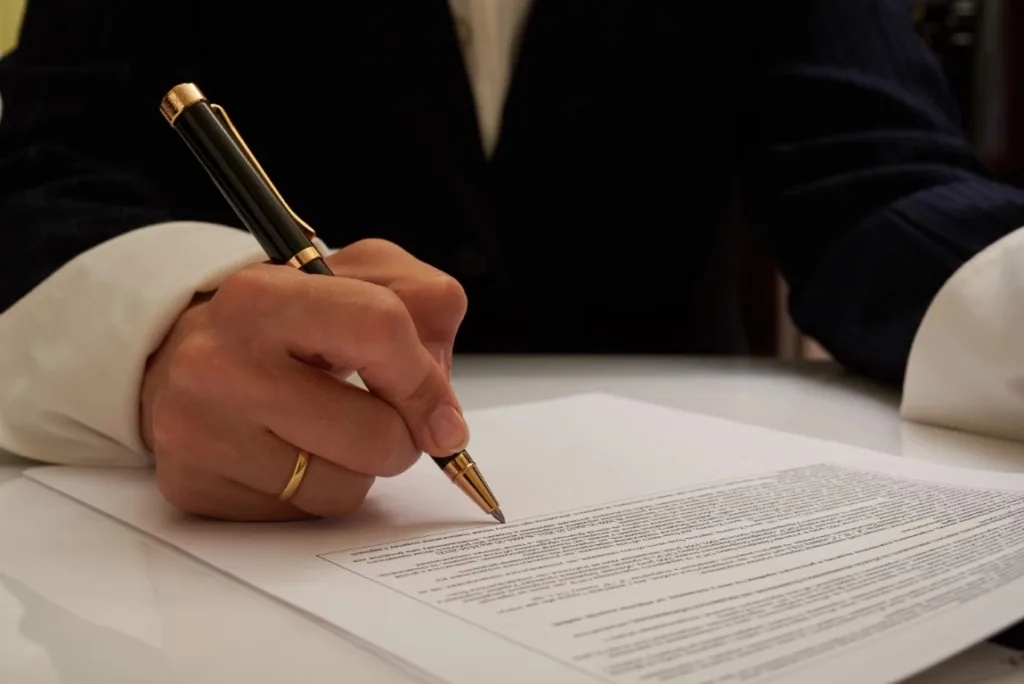
As you move through your 20s, 30s, and 40s, there is likely a long list of goals you’ll want to achieve. You may work toward purchasing a home, achieving career goals, and starting a family. But, during this process, you may not spend much time thinking about what happens as you near the end of your life. Creating an estate plan may not even be a minor priority.
You may think you’re too young to create an estate plan, and instead focus on other personal responsibilities. However, it is important to understand just how important it is to create an estate plan, even if you think you’re too young. In this blog, we’ll discuss the importance of creating an estate plan as soon as possible and the risks of putting off this essential step.
When Should You Create an Estate Plan?
Creating an estate plan isn’t just something elderly individuals should consider. It is a crucial step for anyone who wants to protect their assets and ensure their wishes are fulfilled. You should consider creating an estate plan once you have accumulated assets, such as a home, savings, or investments, or if you have dependents like children or aging parents.
When you create an estate plan, it will outline how your property will be distributed, designate guardianship for minor children, and provide instructions for healthcare decisions if you become incapacitated. Life events like marriage, divorce, the birth of a child, or starting a business are key triggers for establishing or updating an estate plan.
Planning early gives you peace of mind, reduces potential legal disputes, and allows you to control your legacy rather than leaving decisions to the courts. While you might think you’re too young to create an estate plan, it is never too early to start thinking about your future and protecting your assets.

Are You Too Young for an Estate Plan?
Many people assume that estate planning is only necessary later in life, but that’s a misconception. Even young adults can benefit from having an estate plan. Life is unpredictable, and an estate plan ensures your wishes are followed regardless of age.
Young professionals with assets, such as savings accounts, retirement accounts, or real estate, can protect their financial future and designate beneficiaries. Those with children, even at a young age, can determine guardianship in case of unforeseen events.
Health emergencies, accidents, or sudden illnesses can happen at any age, making it important to have medical directives and powers of attorney in place. Creating an estate plan early allows you to build it gradually, updating it as your life circumstances change. It’s never too early to take control of your future and protect the people you care about.
The Risks of Not Having an Estate Plan
You might not think there is much risk if you don’t create an estate plan, especially if you don’t have many assets. However, putting off making this plan can have dire consequences. The biggest risk of not having an estate plan is that your loved ones may have to go through the probate process.
If you don’t have a will or trust, your loved ones will need to file a petition with the court to gain access to your assets. They will review your assets, pay any outstanding debts and taxes, and then distribute the remaining assets in accordance with state law. While this might not seem like much of a problem, it may not be what you want.

Allowing the state to distribute your assets according to local laws also means your assets may not be divided according to your wishes. Whether you want to ensure every member of your family receives an equal portion or you want all of your assets to go to a charitable organization of your choice, probate doesn’t allow for this.
What to Include When You Create an Estate Plan
As you prepare to create an estate plan, it is essential to ensure that the plan is comprehensive. Before you go into this process, there are a few things you should consider including in the plan, including the following:
- Will and Trust: Your will and trust are crucial components in protecting your assets and ensuring that your loved ones can avoid the probate process following your passing, which would allow the state to divide and distribute your assets.
- Power of Attorney: You won’t always be in a position to speak for yourself, and you want to ensure you have someone supporting you if this happens. Whether financially or medically, a power of attorney will keep you safe.
- Healthcare Directives: In addition to your power of attorney, you should consider establishing a healthcare directive, which ensures your wishes are followed if you become incapacitated following an injury or accident.
- Business Succession Plan: If you’re a business owner, you should also discuss creating a business succession plan with your business partners and financial advisors, which will ensure the business continues to run smoothly if you’re no longer around.
- Guardianship: While you don’t want to think about not being around to raise your children, it’s important that you include essential information about who will care for them when you’re no longer around.

Create an Estate Plan with Bishop Estate Law
When you’re ready to create an estate plan, it’s essential to work with an experienced estate planning team. If you’re looking for a reliable estate planning attorney in the Northern Utah area, turn to our team at Bishop Estate Law for expert support. For years, we’ve helped individuals and families craft the perfect estate plan to protect their legacy.
Whether you need an estate plan to protect properties, businesses, or wealth, we have the tools to help you through it all. When you team up with our team of experts at Bishop Estate Law, you can trust that your estate plan will keep you and your loved ones safe, no matter what obstacles may lie in your path.
If you would like to create an estate plan, don’t hesitate to contact us for support.